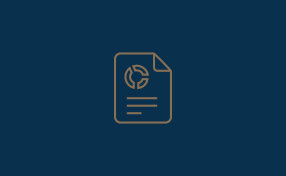
Filter By:

Congressional Office for International Leadership (COIL) Announces 2026 Grant GuidelinesWASHINGTON, D.C. – Today, COIL begins soliciting proposals for its 2026 Open World Program from U.S. based organizations with established foreign visitor programs or a demonstrated ability to host foreign visitors. Organizations submitting proposals design 8-day professional development programs for... 
COIL Hosts First Regional Judicial Alumni Conference in Ulaanbaatar, MongoliaWashington, D.C. — The Congressional Office for International Leadership (COIL), an agency of the U.S. Congress, is excited to host its first regional judicial alumni conference on June 16 and 17 in Ulaanbaatar, Mongolia. The conference will bring together over 100 Open World alumni judges from Arme... 
Open World Program Alumnus Rufat Safarov Honored with U.S. Department of State Human Rights Defender AwardWASHINGTON, D.C. – The Congressional Office for International Leadership (COIL) proudly recognizes Open World program alumnus Rufat Safarov, who has been named a recipient of the 2024 Secretary of State’s Human Rights Defender Award. Safarov is the head of Defense Line, an organization that monitors... 
Presidential Management Fellow Joins COILWASHINGTON, D.C. - The Congressional Office for International Leadership (COIL) is pleased to welcome its first Presidential Management Fellow into the role of Congressional Relations Specialist. Chris Radcliffe is a recent graduate from the Johns Hopkins University School of Advanced International ... 
COIL Welcomes Civil Society Activists from GeorgiaWASHINGTON, D.C. - The Congressional Office for International Leadership (COIL), an agency of the U.S. Congress, welcomes a group of civic activists from Georgia on the Open World program this Thursday. The delegation will consist of five professionals and their facilitator. The delegation of civil ... 
Signing of MOU to Establish Sister City Partnership Between Helena, Montana and Stepanavan, ArmeniaSigning of MOU to Establish Sister City Partnership Between Helena, Montana and Stepanavan, Armenia WASHINGTON, D.C. — The Congressional Office for International Leadership (COIL) is excited to announce that as a result of our Member of Parliament delegation from Armenia, a sister city partnership w... 
Testimonial of Fiscal Year 2024Chairman Valadao, Ranking Member Espaillat and Members of the Subcommittees, thank you for the opportunity to submit testimony for the record on the Congressional Office for International Leadership (the Office, COIL). Congressional participation on our governing board and in our programs has made t... 
On the Passing of Open World Program Alumnus Alexei NavalnyWASHINGTON, D.C. — The Congressional Office for International Leadership expresses its sincere condolences to the family of Alexei Navalny, a 2005 Open World program alumnus. The Open World program was Mr. Navalny’s first trip to the United States. His local governance-themed delegation was hosted b... 
Budget Justification for Fiscal Year 2025Download the Budget Justification for Fiscal Year 2025 
Budget Justification for Fiscal Year 2024Download the Budget Justification for Fiscal Year 2024 
Polish Open World Alumni Elected to ParliamentWARSAW, POLAND — Three alumni of the Open World program – Agnieszka Buczynska, Jolanta Niezgodzka, and Bartosz Romowicz – have been elected for the first time to the parliament (Sejm) in October 2023, representing a new generation of Polish leadership. "The Open World program is a critical effort t... 
10th Anniversary Delegation of Nelson Fellows from UkraineWASHINGTON, DC — To recognize a decade of the Senator Ben Nelson Fellows program, a delegation of five battlefield healthcare professionals will take part in the Open World program November 7-18. After an extended orientation in Washington, DC, the Nelson Fellows will be hosted in Omaha for the rema... 
Congressional Office For International LeadershipWASHINGTON, D.C. - The Open World Leadership Center (the Center) is announcing that the United States Congress has approved a name change to the Congressional Office for International Leadership (COIL). The Board of Trustees' voted to adopt the name Congressional Office for International Leadership ... 
COIL Hosts First Latvia Program And Renewed Lithuania ProgramMarch 9, 2023 WASHINGTON, DC - The Congressional Office for International Leadership (COIL) launches its first Latvia program and a renewed Lithuania program this week with the arrival of two delegations from each country. These four delegations will be traveling on civic themes as part of a renewed... Search by Phrase |
